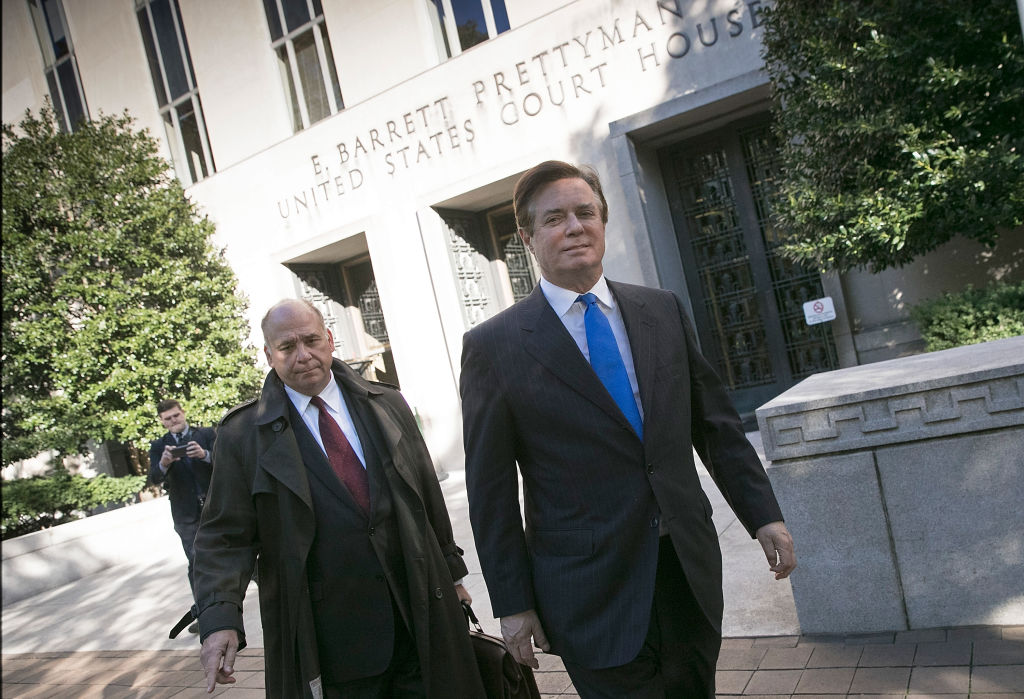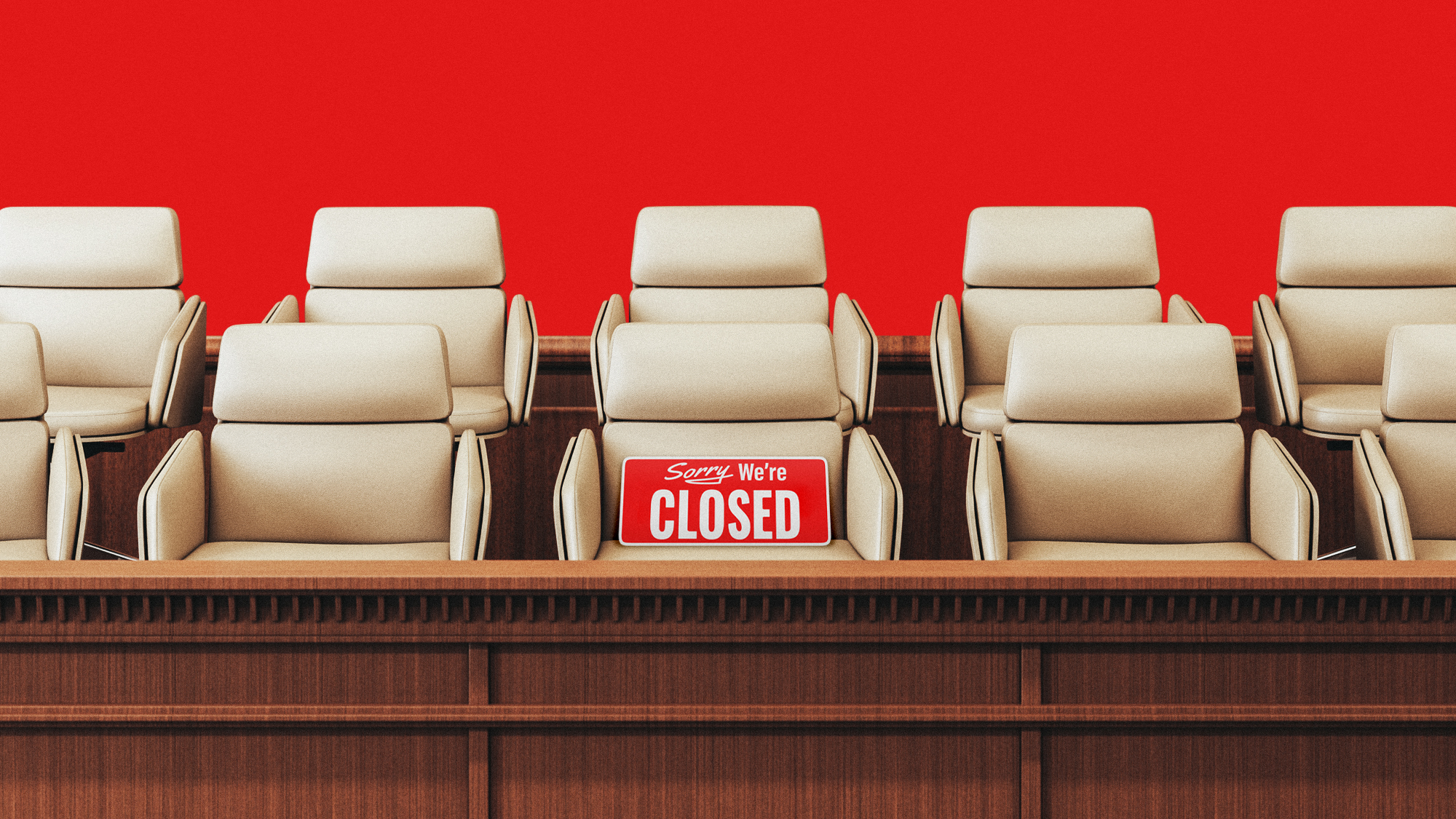Paul Manafort's first high-profile trial begins Tuesday. He and Robert Mueller both have a lot at stake.


A free daily email with the biggest news stories of the day – and the best features from TheWeek.com
You are now subscribed
Your newsletter sign-up was successful
Special Counsel Robert Mueller's first court trial begins Tuesday in Alexandria, Virginia, with selection of 12 jurors to consider Mueller's first 18 charges against President Trump's former campaign chairman Paul Manafort, most of them dealing with alleged financial crimes. Manafort, 69, has pleaded not guilty. The trial is expected to last about three weeks, and if convicted, Manafort realistically faces seven to 12 years in prison, based on federal sentencing guidelines. Mueller's team has named 35 potential witnesses to help make its case that Manafort fraudulently obtained loans and illegally failed to report a "significant percentage" of the $60 million he allegedly earned in Ukraine to the IRS.
Tuesday morning, before jury selection, U.S. District Judge T.S. Ellis will adjudicate a motion by Manafort's legal team to exclude prosecutors' evidence detailing Manafort's work for a pro-Russia party in Ukraine, arguing that such information would be "irrelevant, prejudicial and unnecessarily time-consuming." In a second trial later this year, Mueller's team will argue that Manafort acted as an unregistered foreign agent. Mueller, who isn't expected to attend the Virginia trial, has won indictments or guilty pleas from 32 people and three companies, and Manafort is the only American who opted to try his luck in court. If you're wondering why Manafort isn't cooperating with Mueller, The Week's Matthew Walther has some theories.
A free daily email with the biggest news stories of the day – and the best features from TheWeek.com
The Week
Escape your echo chamber. Get the facts behind the news, plus analysis from multiple perspectives.

Sign up for The Week's Free Newsletters
From our morning news briefing to a weekly Good News Newsletter, get the best of The Week delivered directly to your inbox.
From our morning news briefing to a weekly Good News Newsletter, get the best of The Week delivered directly to your inbox.
Peter has worked as a news and culture writer and editor at The Week since the site's launch in 2008. He covers politics, world affairs, religion and cultural currents. His journalism career began as a copy editor at a financial newswire and has included editorial positions at The New York Times Magazine, Facts on File, and Oregon State University.
-
 Film reviews: ‘Wuthering Heights,’ ‘Good Luck, Have Fun, Don’t Die,’ and ‘Sirat’
Film reviews: ‘Wuthering Heights,’ ‘Good Luck, Have Fun, Don’t Die,’ and ‘Sirat’Feature An inconvenient love torments a would-be couple, a gonzo time traveler seeks to save humanity from AI, and a father’s desperate search goes deeply sideways
-
 Political cartoons for February 16
Political cartoons for February 16Cartoons Monday’s political cartoons include President's Day, a valentine from the Epstein files, and more
-
 Regent Hong Kong: a tranquil haven with a prime waterfront spot
Regent Hong Kong: a tranquil haven with a prime waterfront spotThe Week Recommends The trendy hotel recently underwent an extensive two-year revamp
-
 The countries around the world without jury trials
The countries around the world without jury trialsThe Explainer Legal systems in much of continental Europe and Asia do not rely on randomly selected members of the public
-
 ABC News to pay $15M in Trump defamation suit
ABC News to pay $15M in Trump defamation suitSpeed Read The lawsuit stemmed from George Stephanopoulos' on-air assertion that Trump was found liable for raping writer E. Jean Carroll
-
 Judge blocks Louisiana 10 Commandments law
Judge blocks Louisiana 10 Commandments lawSpeed Read U.S. District Judge John deGravelles ruled that a law ordering schools to display the Ten Commandments in classrooms was unconstitutional
-
 ATF finalizes rule to close 'gun show loophole'
ATF finalizes rule to close 'gun show loophole'Speed Read Biden moves to expand background checks for gun buyers
-
 Hong Kong passes tough new security law
Hong Kong passes tough new security lawSpeed Read It will allow the government to further suppress all forms of dissent
-
 France enshrines abortion rights in constitution
France enshrines abortion rights in constitutionspeed read It became the first country to make abortion a constitutional right
-
 Texas executes man despite contested evidence
Texas executes man despite contested evidenceSpeed Read Texas rejected calls for a rehearing of Ivan Cantu's case amid recanted testimony and allegations of suppressed exculpatory evidence
-
 Supreme Court wary of state social media regulations
Supreme Court wary of state social media regulationsSpeed Read A majority of justices appeared skeptical that Texas and Florida were lawfully protecting the free speech rights of users
